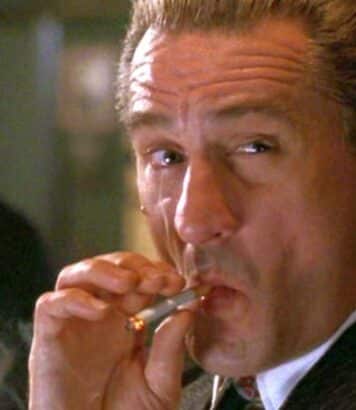“Monsieur Aznavour”: the highly successful biopic by Grand Corps Malade and Mehdi Idir

Unlike international biopics, Monsieur Aznavour faithfully traces Charles Aznavour’s early life, exploring the deep and complex aspects of his life. The film is a tribute to the artist and his origins, showing his shadows and his light. We loved it.
From the very first images, the film reveals the weight of history in Charles Aznavour’s career. Opening with archive footage of the Armenian genocide, it shows the legacy that Charles Aznavourian and his family carried with them to France. This tragedy, “this flaw transformed into strength”, is an integral part of the man and artist he was to become. The filmmakers portray the struggles of young Charles and his community. In the run-up to success, the filmmakers remained faithful to the agreements made with Aznavour himself. In 2017, he gave his son-in-law, Jean-Rachid, the go-ahead for the project.
Faithful and sincere narration
In Monsieur Aznavour, Grand Corps Malade and Mehdi Idir don’t idealize the artist. Unlike smoother biopics, such as the one devoted to Amy Winehouse, the directors show the less flattering aspects of the composer. Without judgment, their story helps us understand the man behind the star. The filmmakers do not hesitate to explore the darkest moments of his life.
There are a number of striking episodes in which Charles, with only his ambition and his friend Pierre Roche (played by Bastien Bouillon) as companions, struggles to exist. His sister Aida (played by Camille Moutawakil) and Edith Piaf (Marie-Julie Baup) play key roles in his life, symbolizing both his support and his challenges.
Tahar Rahim, remarkable
One of the highlights of the film is Tahar Rahim‘s performance. Having already won a César for Un prophète, Rahim delivers a fascinating interpretation of Charles Aznavour. Without physically resembling the singer, the actor manages to capture the essence of the artist. Thanks in part to his meticulous make-up, he portrays a credible Aznavour. But it is above all in his meticulous preparation, immersing himself in the archives made available by the family, that the actor has found his balance.
Tahar Rahim is most impressive in his musical interpretation. Unlike other biopics, where musical understudies are commonplace, Monsieur Aznavour relies here on Rahim’s voice and authenticity to bring the songs to life. This choice of direction reinforces the viewer’s immersion and gives the film a musical depth.
An echo of Aznavour
Music plays a central role in Monsieur Aznavour. Through his songs, the film reveals Aznavour’s poetic pen and inimitable swing. This art of writing, combined with his unique rhythm, is faithfully transcribed, offering a glimpse of his raw talent and mastery of words.
The directors also recall his musical impact. For example, Dr. Dre’s What’s the Difference, which uses a sample of Parce que tu crois, recalls Aznavour’s international reach and influence on generations of artists. This reference to Aznavour’s American dream cleverly reinforces the theme of success and international recognition that was so dear to him.
Read also: “Culte”: The event series on the beginnings of French reality TV




